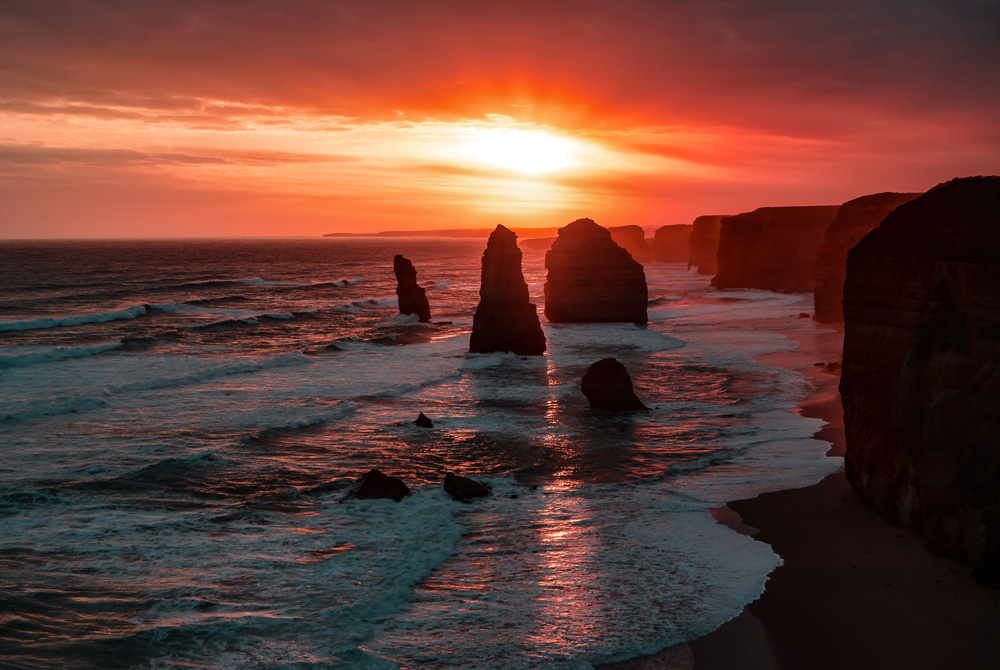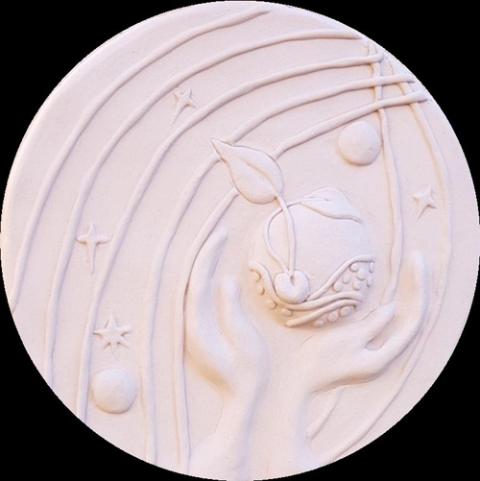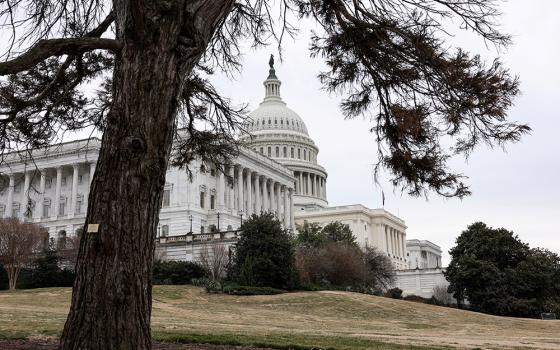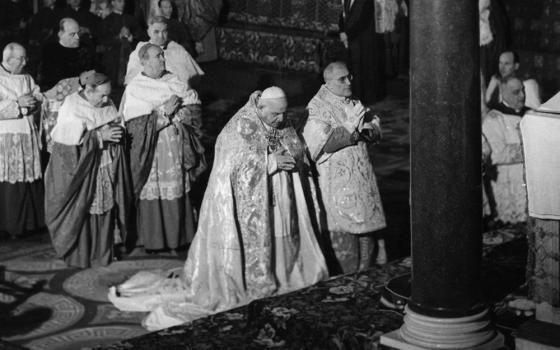
(Unsplash/Graham Holtshausen)

"Bound to Love" sculpture, by Kenise Neill
"Once you bring life into the world, you must protect it. We must protect it by changing the world."
— Elie Wiesel
What am I hearing and feeling? Since May 2018 I have been attending Quaker meetings, where I am attracted to the lack of hierarchy, to the community discernment, and to the mutual participation. It is another way of being, where we let go and open ourselves to others, to possibilities not yet imagined, and to a journey in which "I" and "they" are transformed to "we," to one! To a place where we are bound to love!
Since 1647, the Society of Friends (Quakers) have maintained a social structure through silent worship, respectful listening and no decision without unity. The focus is on peace. Processes for managing dissent and differences have stood the test of centuries. There is a refreshing absence of what many traditions and organizations experience as elitism and/or clericalism.
In July 2019 I attended the Quaker yearly meeting in Hobart, Australia, where I experienced a different way of making decisions together. The yearly meeting is a time when important decisions are made by the whole community present. When the group came to a dissenting point, there were long periods of prayerful silence, deep listening, clarification and adjustment. The community came to consensus in conversation and without voting. I was deeply moved by the powerful witness to "communion" culminating in unified decision-making.
I feel called by this Quaker community; by my own community and church; by scripture, poets, scholars; by my own life experience with suffering people, and especially indigenous people of Australia with whom I minister. I feel called to be at one with, to be an advocate for, and to protect children, all vulnerable life, and Earth. Given the utter desperation of so many, how can I not respond?
Our church and Pope Francis are calling us to protect and care for the most vulnerable at a time when our world is in a state of emergency. In his second encyclical, "Laudato Si', on Care for Our Common Home," he said that indigenous peoples:
…are not merely one minority among others, but should be the principal dialogue partners, especially when large projects affecting their land are proposed. For them land is not a commodity but rather a gift from God and from their ancestors who rest there, a sacred space with which they need to interact if they are to maintain their identity and values.
On March 19, 2013, at his inauguration Mass, Pope Francis called us to protect life. Like St. Joseph, our vocation is to be protectors of vulnerable life — to be on the alert to care for all life and Earth.
In his lecture, "Animating Freedom: Accompanying Indigenous Struggles for Self-determination," Jason McLeod presented a prophetic treatise on the way forward for the First Peoples of Australia (Aboriginal People) and, more broadly, for all of us as we heal from our own colonial experience. Over generations many peoples have been violated, subjugated and ultimately removed from their land when a dominant group has taken control. This has been happening for Australian Aboriginal people since 1788. According to McLeod, even many non-indigenous peoples are descendants of cultural groups whose ancestors were dispossessed of land and basic human rights.
When he spoke about "animating freedom" in the context of historical and continuing colonization he said:
The colonial project is alive and well — around and within us — even when we are clueless of its presence ... empire is war in a concentrated and permanent form. Dismantling empire should be our core business. ... In a country such as Australia, deep in denial about the frontier wars and the ongoing effects of colonialism, a shared commitment to animate freedom could be balm of our collective soul.
How do I/we move from a place of privilege and power, dismantle colonialism and patriarchy, and change hierarchical structures that no longer serve us or our world? How do we elevate many people from subjugation to a place of equality?
Tragically, across the world, opportunity, choice and outcomes are increasingly linked to skin color, country, and/or post office code. McLeod calls all of us to move away from colonization that involves "tradition, invasion, warfare, poverty and welfare." He urges us to move toward decolonization that will result in a new society, culture and organization.
McCleod's powerful depiction of a "healing" cosmology gives direction for the way forward: we need to shift from non-renewable energy to renewable energy; from mindsets and societies that emphasize inequality and competition to ones rooted in equality and cooperation; and from strategies of resolving conflict with violence to strategies of nonviolence and protection of life.
Advertisement
I think our time in history is being called by McCleod, a Quaker, to a new way of being. We are called to cultivate expanding hearts that will sensitize us to the tragedy of separateness, violence, greed and pain; to a heart-consciousness where we rejoice in the unity of life; and where we suffer over the violation of the gentle, tender and merciful. The poet Rumi invites us to "shut your eyes, so the heart may become your eye, and with that vision look upon another world."
Jesus and the Scriptures can also guide us to see "another world." In the story of the good Samaritan (Luke 10: 25-37) Jesus told us of two men who, living purely by the law, walked past a seriously injured man and left him to die. Then the Samaritan, a social and religious outcast, was moved by compassion and tended the man. His merciful and tender response can move us from the cycle of separation to inclusion. There is no "they" — we are one.
What are we seeing, hearing and feeling? How do we respond with vision and courage, giving our lives for freedom, healing, peace and love in society, church and the world in 2020?
[Kenise Marie Neill is a Sister of St. Joseph in Australia. She currently works in assessing potential foster parents for indigenous children, and creating sculptures and other artistic creations. She has been attending Quaker meetings for silent prayer once a week for 12 months.]





